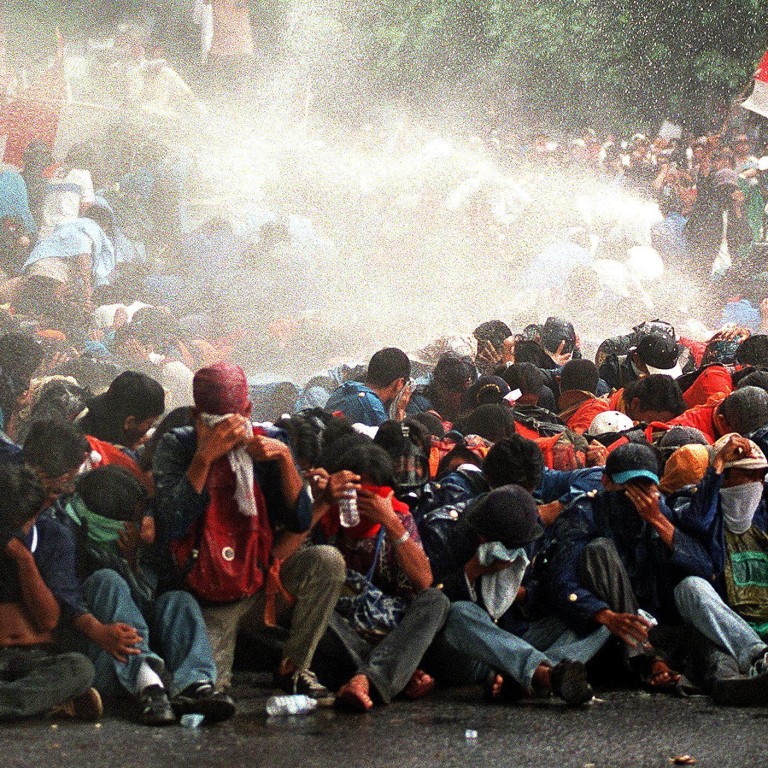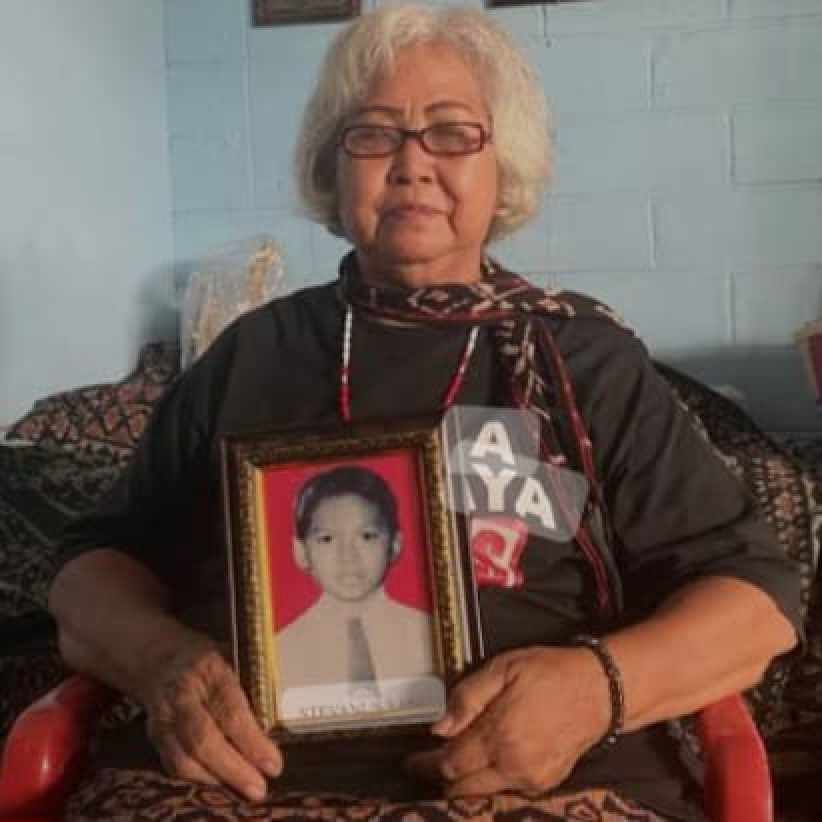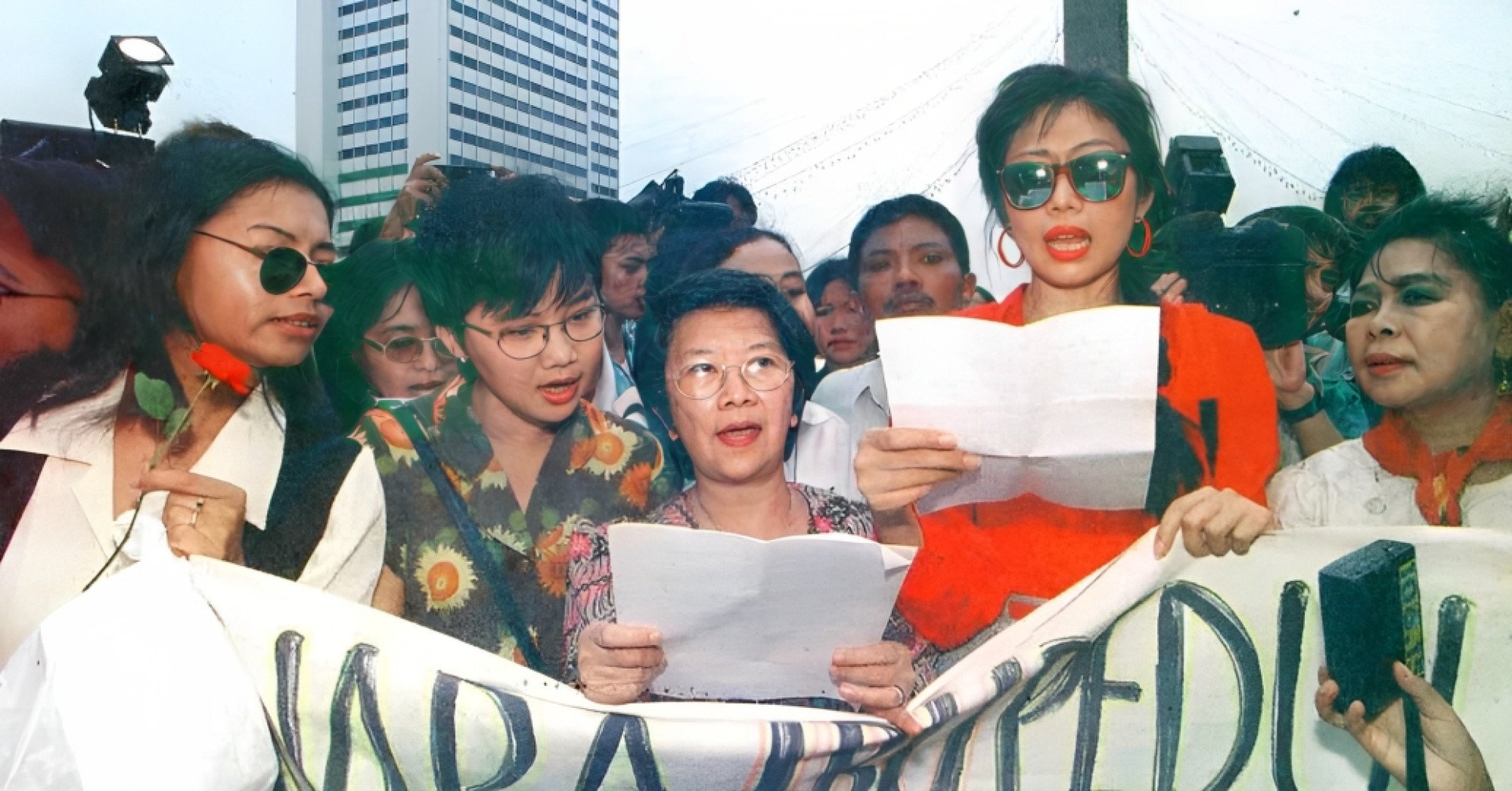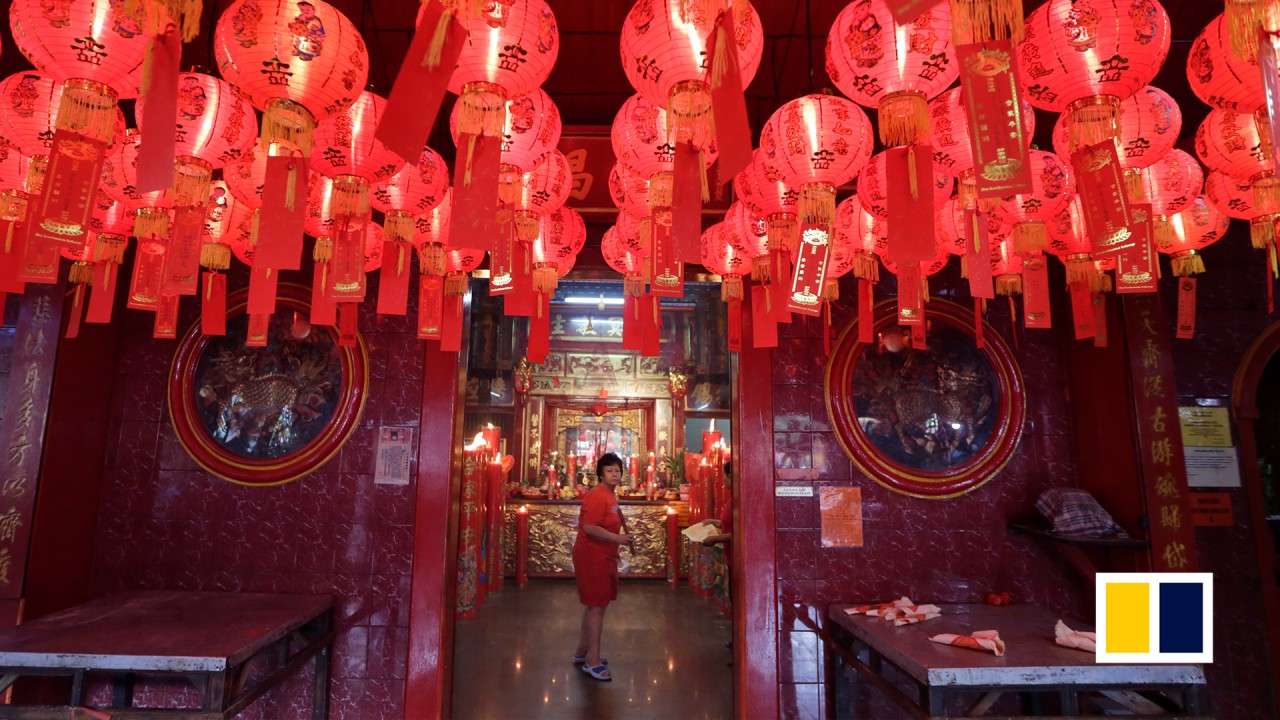
Victims of Indonesia’s anti-Chinese riots cling to hope for justice as painful memories fester
- Survivors of the 1998 riots that killed hundreds and destroyed Chinese homes and businesses continue to press for accountability and a settlement
- But activists fear the struggle for justice will get harder amid incoming president Prabowo Subianto’s ‘blatant’ disregard for human rights
Stevanus was 16 at the time, and like many Indonesian youngsters, loved playing football and listening to music with his friends. He was also a curious teenager, so when he heard that there was some trouble at a nearby shopping centre in East Jakarta, he rushed to take a look.
But Stevanus didn’t return. He was killed in a fire that broke out at the City Plaza Klender mall, an incident that would claim the lives of hundreds of people.
Now 31, Magdalena has followed in her mother Maria Sanu’s footsteps trying to “learn the truth behind the cases of the tragic events and the human rights violations” that changed the course of their lives.
“We have struggled for the past 26 years with the families of other victims to learn the truth … and to get justice,” Magdalena told This Week in Asia.
Pent-up anger towards military dictator Suharto’s 32-year rule and an economic downturn triggered by the Asian financial crisis saw Indonesians take to the streets in violent protests against food shortages, mass unemployment and corruption.
The country’s minority Chinese community – seen as disproportionately wealthy and blamed for stealing jobs – became prime targets of the rioters, who attacked homes and businesses owned by ethnic Chinese.
Another major flashpoint for the rampage and Suharto’s resignation was the killing of four students by security forces at a protest in Jakarta’s Trisakti University. An investigation into the incident was opened, but nobody had been charged for the shootings.
Victims, their families and activists commemorated the 26th anniversary of the riots and the Trisakti tragedy earlier this month as they continued to press for accountability from the government.

Seeking accountability
While Prabowo has denied accusations that he helped instigate the riots, he earlier admitted his role in the kidnapping of student democracy activists in 1998, which led to his dismissal from the army.
Indonesian author and leading feminist Julia Suryakusuma described the incoming leader, who takes office in October, as a “blatant symbol and representation of the lack of recognition of human rights issues in Indonesia”.
“So far he has not taken any responsibility, so there’s no reason to think he will do anything different,” she said.
He apologised last year for the violence and offered non-judicial settlements to the victims’ families.
Jane said concrete legal and state accountability measures must follow Widodo’s “acknowledgement and regret” so that the perpetrators of the killings are finally brought to light.
“The victims and their families have had to endure mental and physical torment due to the lack of accountability of the state to provide effective recovery by upholding the rule of law,” she said.

Ethnic Chinese, women targeted
Suryakusuma said women bore the brunt of the atrocities due to widespread public discontent with the Chinese tycoons and large business groups that thrived under Suharto’s administration.
“The mostly wealthy Chinese and their conglomerates were seen as the cronies of the Suharto regime, but the anger of the people could not be targeted at the conglomerates, so they went after the most vulnerable members of the Chinese community, the women,” she said.
The bloodshed prompted Indonesia to establish Komnas Perempuan, which organises campaigns every year to keep the public memory of the riots alive and “ensure that the events of 1998 do not happen again”.
Veryanto Sitohang, a commissioner for the agency, acknowledged that the outreach efforts may fall on deaf ears at government level despite most victims and their families still waiting for a judicial settlement.
“We suspect that this has not been done because the actors involved in the May 1998 riots are currently in power circles,” he said.
But activists have not lost hope, Suryakusuma said. Every Thursday afternoon since 2007, a group of volunteers dressed in black stand in front of Jakarta’s State Palace in silent protest to demand justice for their lost loved ones.
“This is a very visible sign that there is a demand that these past human rights issues be recognised, even though it has not been addressed for so long,” she said.
Faiz Nabawi, the president of the student executive body at Trisakti University, said that students commemorate the campus shootings through community events and educational discussions aimed at ensuring the next generation understands this pivotal chapter in their school’s history.
Meanwhile, Magdalena vowed to carry on with her 78-year-old mother’s long-standing efforts to secure justice for the death of Stevanus and all the other families who lost loved ones during the riots.
“As the next generation, I will continue to fight so that the truth about cases of past human rights violations is revealed,” she said.


